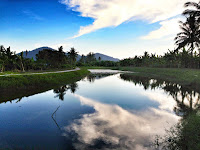Time for a cuppa
Whatever the situation – good or bad – a cuppa was the answer. If the occasion was sad, a cuppa would cheer you up, she claimed. If the occasion was joyful, then a cuppa was an excellent way to celebrate. When arriving home from school or work, there was always a cuppa ready.
The cuppa was the way to start the day and putting the kettle on was the first thing that happened when one got up. Soon there was a cup of steaming tea (in case you hadn’t worked out what a ‘cuppa’ actually was) to accompany the toast and boiled egg, or plate of porridge or cereal to start the day. It was difficult to escape from the house, even if one was late for work, without having a cuppa, because it had been brewed and poured already.
Perhaps under the influence of America, the British cuppa has been replaced in many households by coffee, which can range from a spoonful of instant to a beverage that comes out of a machine that you need a licence to operate.
But many people still need their morning cuppa.
In a tropical country like Malaysia, you can actually visit a tea plantation and see where your cuppa really comes from. And if you are a committed tea drinker you should certainly do this.
There are tea plantations aplenty in the Cameron Highlands, a mountainous area some 3 hours drive north of Kuala Lumpur, which you can visit and can learn the whole process from planting to picking to packing. You can of course purchase tea from the shops on the plantations. And you may well find that it tastes different from usual because you have ‘been there’ and bought it from its source.
So when you are on your Malaysian Termstay, whether brief or extended, and particularly when you have made your decision to become a tropical expatriate, make sure that a visit to the tea plantation is high on your list of priorities.
 |
| Tea is widely served with milk everywhere in Malaysia in the local form of Teh or Teh Tarek. |





Comments
Post a Comment